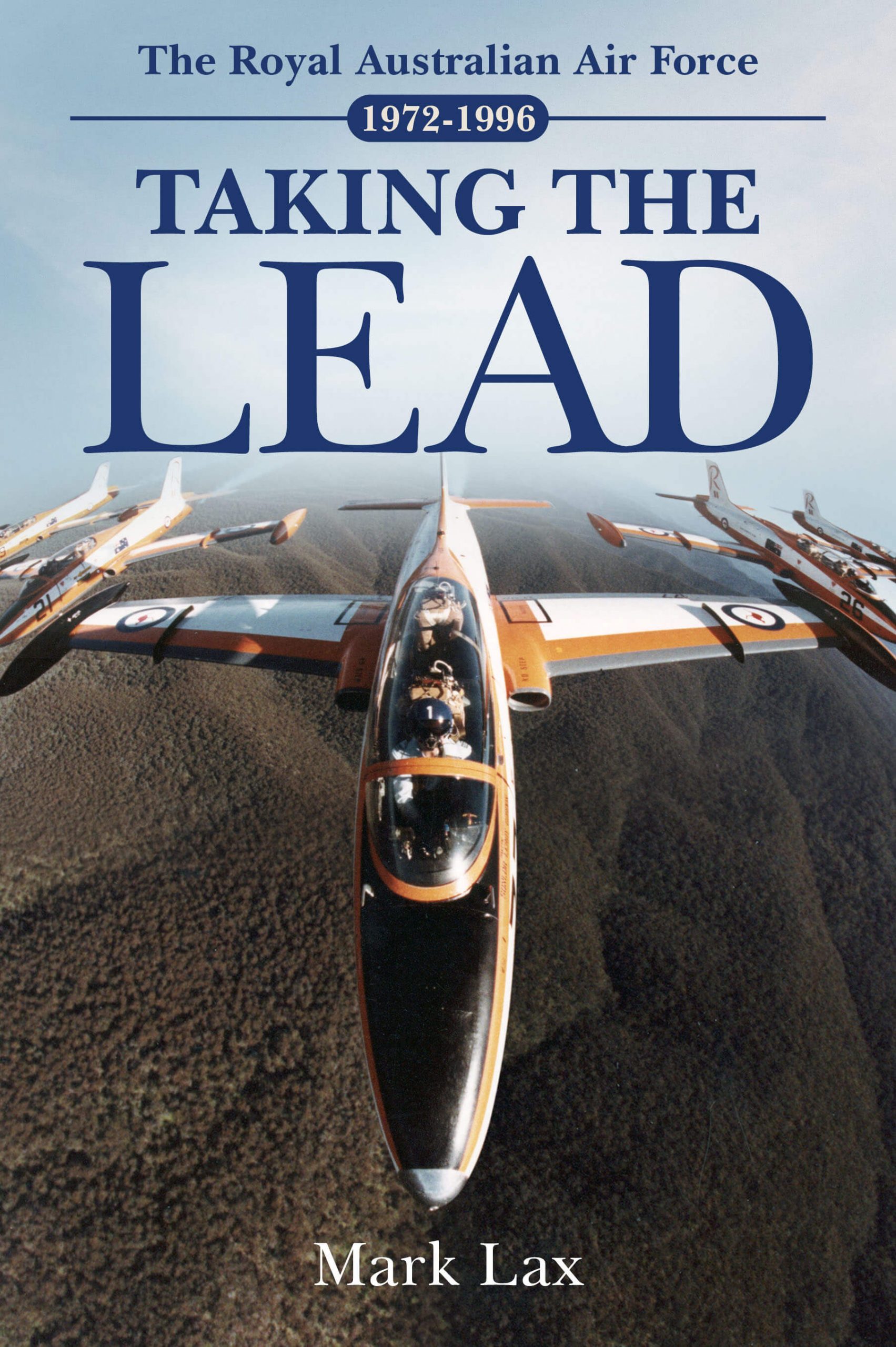This is the third volume in a series of official histories of the RAAF. Chris Coulthard-Clark’s Third Brother took the Service from its inception to 1939. Alan Stephens’ Going Solo covered 1946 to 1971 with two volumes of the Official Histories of the Second World War detailing that conflict.

The 25-year coverage of these volumes is an easily comprehensible period. The time gap between 1996 and now enables a good balance between capturing the memories of those who served in that period and avoiding the probability of clashes of opinion based on personalities. In this volume that balance has produced a fascinating, very readable and valuable account of the RAAF’s considerable advances in this quarter century.
Dr Lax has written a well-constructed book which is excellent value for money. It has not been written as an equipment-dominated volume as perhaps could have been expected of an equipment-intensive service. Nor is it a pilot-led book. Instead, its structure – organisation, personnel, equipment and operations – provides a coverage that is lucid and logical.
What are the chief impressions from this book? Defence was subjected to a plethora of overlapping and sometimes contradictory reviews: one can only be amazed by the resilience of the services and the department as a result. Clearly in this period the concept of one Australian Defence Force (as opposed to three single services) had yet to mature: the many-way tussle between services, ministers, the department and industry had yet to become a more unified approach. The post-Vietnam loss of helicopters by the RAAF to the army was a wound that had not fully healed.
Mark Lax has made very good use of the access that an official imprimatur gives. The tables and endnotes are extensive and useful. This is a well thought-out book.
A similar book needed for the navy and army. I do look forward to the next volume of this one – presumably 1997 – 2022 – about a fully fifth-generation air force – but I might not be here to do a review!
Reviewed for RUSIV by Michael O’Brien, June 2020
Contact Royal United Services Institute about this article.






